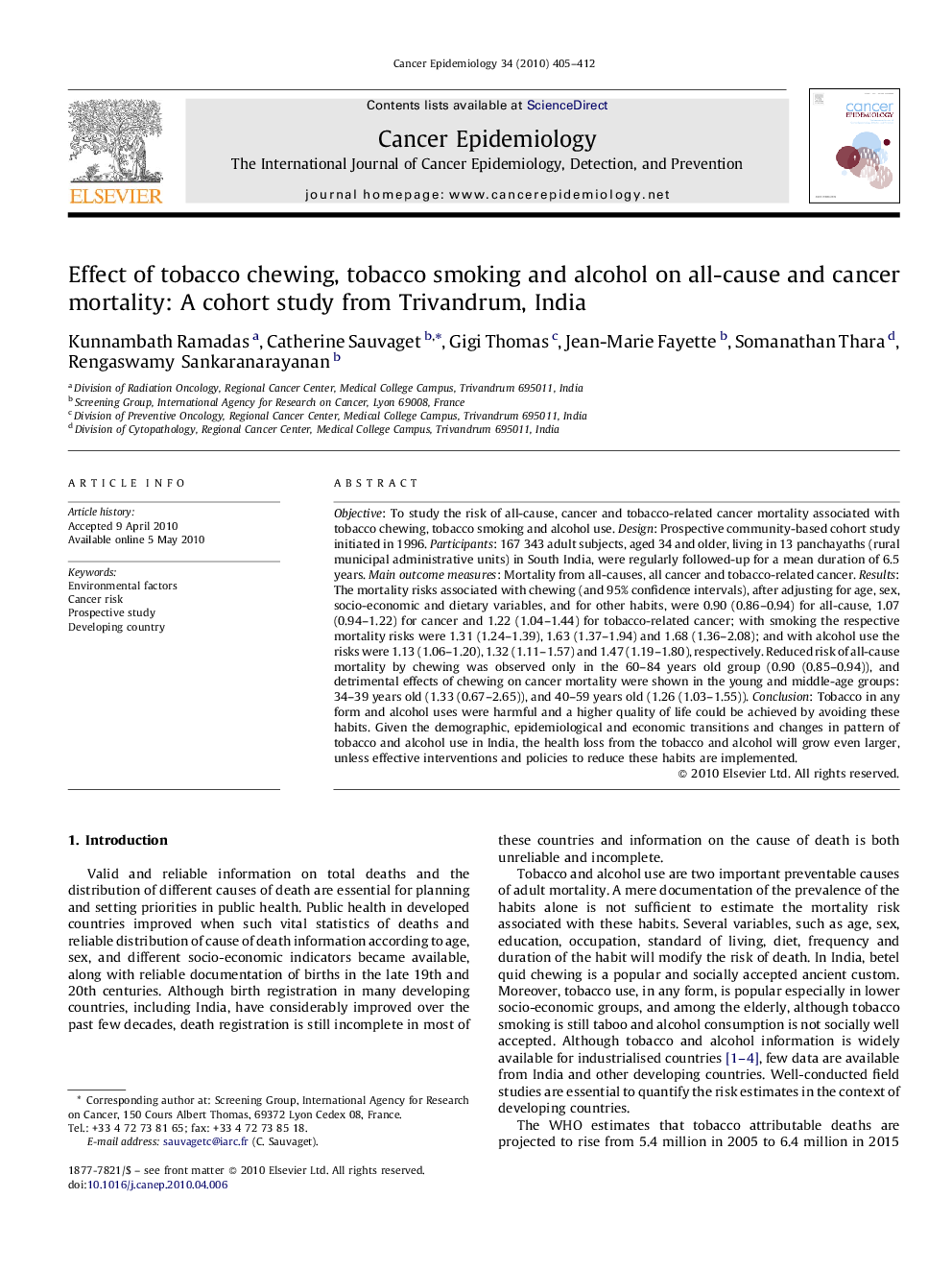| Article ID | Journal | Published Year | Pages | File Type |
|---|---|---|---|---|
| 2109241 | Cancer Epidemiology | 2010 | 8 Pages |
Objective: To study the risk of all-cause, cancer and tobacco-related cancer mortality associated with tobacco chewing, tobacco smoking and alcohol use. Design: Prospective community-based cohort study initiated in 1996. Participants: 167 343 adult subjects, aged 34 and older, living in 13 panchayaths (rural municipal administrative units) in South India, were regularly followed-up for a mean duration of 6.5 years. Main outcome measures: Mortality from all-causes, all cancer and tobacco-related cancer. Results: The mortality risks associated with chewing (and 95% confidence intervals), after adjusting for age, sex, socio-economic and dietary variables, and for other habits, were 0.90 (0.86–0.94) for all-cause, 1.07 (0.94–1.22) for cancer and 1.22 (1.04–1.44) for tobacco-related cancer; with smoking the respective mortality risks were 1.31 (1.24–1.39), 1.63 (1.37–1.94) and 1.68 (1.36–2.08); and with alcohol use the risks were 1.13 (1.06–1.20), 1.32 (1.11–1.57) and 1.47 (1.19–1.80), respectively. Reduced risk of all-cause mortality by chewing was observed only in the 60–84 years old group (0.90 (0.85–0.94)), and detrimental effects of chewing on cancer mortality were shown in the young and middle-age groups: 34–39 years old (1.33 (0.67–2.65)), and 40–59 years old (1.26 (1.03–1.55)). Conclusion: Tobacco in any form and alcohol uses were harmful and a higher quality of life could be achieved by avoiding these habits. Given the demographic, epidemiological and economic transitions and changes in pattern of tobacco and alcohol use in India, the health loss from the tobacco and alcohol will grow even larger, unless effective interventions and policies to reduce these habits are implemented.
